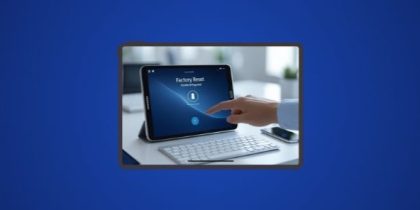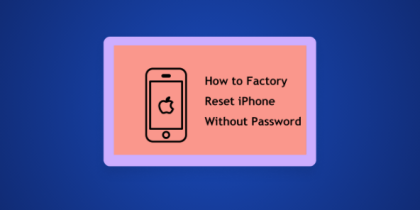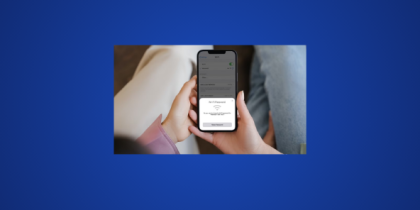School and college Wi-Fi looks harmless, but it’s one of the most monitored environments you’ll ever connect to. Administrators track browsing patterns, block entire categories of websites, and even filter apps they don’t want you using.
If you’re a student looking for ways to protect your privacy and access blocked resources, a VPN is the tool for you. In this blog, you’ll learn why campus networks aren’t private, what risks you face on them, and how PureVPN can help:
Why is school and college Wi-Fi not private?
School and college Wi-Fi may seem like any other connection, but there are many reasons why it isn’t as private as students think:
Network Monitoring
When you’re on a campus network, your traffic moves through systems the institution manages. They use tools that show which types of services are being accessed, when they’re accessed, and from which devices. Even if they don’t look at individual students, the infrastructure is designed to make that possible.
Content Controls
Schools set rules about what students can access, and the network enforces them. That means your connection is checked against lists of blocked sites, apps, and categories. This process isn’t invisible and requires inspecting traffic to decide what’s allowed through, revealing patterns about your online behavior.
Activity Logging
Campus networks routinely record basic details about how the Wi-Fi is used. These logs can include timestamps, domains reached, and which device made the request. The information isn’t monitored in real-time, but can be reviewed later if the institution needs to check usage or investigate a policy issue.
Device Identification
When you connect to school or college Wi-Fi, the network tags your device with identifiers like your login, device name, or MAC address. These identifiers stay consistent each time you reconnect, allowing the system to know which device is active on the network without needing to monitor anything in real time.
Things a VPN protects you from on campus networks
Here are some of the most common things school and college networks do that a VPN protects you from:
Deep Packet Inspection (DPI)
Campus networks use DPI to check what kind of traffic is moving across their system. It helps them identify services, block apps, or flag anything that doesn’t match their policies. A VPN encrypts your connection so the network can’t read or classify what you’re doing.
Speed Throttling
Some online activities like streaming, gaming, and downloading get slowed down on busy campus networks. Throttling often kicks in based on the type of traffic the system detects. With a VPN hiding that traffic, it’s harder for the network to decide what to slow down.
Access Restrictions
Schools rely on filters that block tools, platforms, and websites they don’t want students using, including social media, AI tools, and more. A VPN routes your traffic through a secure, encrypted tunnel, which c lets you access otherwise unavailable services.
Browsing Tracking
Campus networks can detect the types of sites you visit and how often certain services are used. It’s part of how managed Wi-Fi operates, even if no one is checking individual students. A VPN masks all that activity, making your browsing much harder for the network to identify.
What makes PureVPN the best choice for students?
If you’re looking for a reliable VPN service to use on campus networks, here’s why PureVPN is the right choice:
- Reliable on restrictive campus Wi-Fi: PureVPN’s wide selection of protocols and obfuscation help you stay connected on networks that block or interfere with VPNs.
- High-speed performance: Whether you’re in class or in the dorms, PureVPN’s servers keep your connection smooth for streaming, calls, and everyday browsing.
- Real privacy on shared networks: PureVPN encrypts your traffic end-to-end, giving you privacy on Wi-Fi where activity is inspected, filtered, or logged.
- Simple apps for every device: Easy-to-use apps make it quick to stay protected on your laptop, phone, or tablet without extra setup or steps.
- Trusted no-logs protection: PureVPN doesn’t record what you do online, adding an important layer of privacy when you’re on Wi-Fi you don’t control.
What can you do with PureVPN on school or college Wi-Fi?
With PureVPN, you can actually use campus Wi-Fi the way you want to. You can do several things the network normally restricts, such as:
- Access blocked resources: Campus firewalls often block AI platforms, research sites, cloud tools, and external learning resources. PureVPN helps you reach them by routing your traffic through a secure connection outside the network’s restrictions.
- Use available apps and sites: Social media, messaging apps, streaming platforms, and other everyday services are often restricted on campus Wi-Fi. PureVPN lets you use them normally without running into block screens or access errors.
- Stay private on shared dorm networks: Shared Wi-Fi exposes your device to the same network as hundreds of others. PureVPN encrypts everything you send and receive, keeping your activity private even when the Wi-Fi environment isn’t.
- Avoid throttling during heavy use: If your school slows down certain types of traffic like streaming, gaming, or downloading, PureVPN helps you avoid those slowdowns by keeping your traffic hidden from those filters.
- Reach region-specific content: Some websites, platforms, and services aren’t available in your country or your school’s network location. PureVPN lets you connect through other regions so you can access what you need without restrictions.
How to use PureVPN on school or college networks
Just follow these simple steps:
- Install the PureVPN app on your laptop, phone, or tablet and sign in.
- Open the settings and choose OpenVPN (TCP or UDP) as your protocol as it works better on restrictive networks and automatically applies obfuscation.
- Connect to a nearby server for the best speeds and stability.
- Turn on the Kill Switch to stay protected if the VPN connection drops.
- Keep PureVPN running while browsing, streaming, or using blocked tools.
Are VPNs allowed for students in schools and colleges?
VPNs are legal to use in most countries, but schools and colleges may have their own rules about using them on campus Wi-Fi. Many institutions block VPN traffic to enforce their browsing policies, not because VPNs themselves are illegal. If a VPN app works on your campus network, you can use it without worrying as you’re simply bypassing network-level restrictions, not violating local regulations.
How are VPNs helpful for remote education security?
A VPN keeps your connection secure when you access online classes, school portals, or learning platforms from home, dorms, or public Wi-Fi. It encrypts your traffic so logins, assignments, and personal data aren’t exposed on unsecured networks. A VPN also helps you reach course material safely when traveling or studying from regions where certain tools or resources are restricted.
Frequently asked questions
In many cases, yes. A VPN encrypts your traffic and sends it through a secure tunnel, which makes it harder for campus firewalls to see what you’re accessing or block specific services. Some universities still try to block VPN protocols, but enabling obfuscation often helps you connect without issues.
PureVPN is a solid choice because OpenVPN with automatic obfuscation helps your connection blend in, making it harder for the network to detect or block it. Stable nearby servers also help keep speeds consistent.
Yes, if your school blocks research platforms, AI tools, or external learning sites, a VPN routes your traffic through another region so the firewall can’t stop you. Since your connection is encrypted, the network can’t easily see which academic resources you’re trying to reach or filter them out.
Yes, VPNs are legal in most countries, and using one doesn’t break any laws. Schools may block VPN traffic on their Wi-Fi to enforce their own rules, but that doesn’t affect the legality of using a VPN.
Final word
Campus Wi-Fi isn’t built for privacy, but you don’t have to put up with filters, tracking, or restricted access. A VPN like PureVPN gives you a simple way to protect your connection and use the internet the way you need to, whether you’re studying, streaming, or working from campus.








